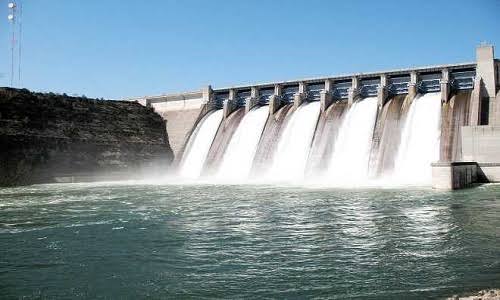Iliyasu Abdullahi Bah
Eight months after the catastrophic collapse of Alau Dam – which claimed lives, destroyed property, and displaced thousands – promised reconstruction work has yet to begin, leaving Borno State residents in growing anxiety.
Despite recent rainfall signaling the start of the 2025 rainy season, the destroyed dam remains unrepaired, reviving traumatic memories of the September 2024 floods that submerged Maiduguri, killed over 100 people, and displaced a million residents.
After initially blaming climate change for the disaster (despite prior warnings from locals), the Federal Government in February 2025 approved ₦80 billion for reconstruction. Water Resources Minister, Joseph Utsev, launched the project in March, pledging 24 month completion with immediate flood mitigation by September 2025.
However, a Journal Nigeria follow up on the abandoned project site showed no workers, just two idle cranes. This inertia comes as NIMET predicts flooding in Borno between May and November 2025.
Hajara Lawan, an Alau housewife, recounts, “We warned officials before the 2024 disaster, but they ignored us. Now they brought equipment only to abandon it. We’re terrified the rains will bring worse flooding this year.”
Village Head Bulama Kadai revealed he recently prevented protests.
“The state’s temporary sand barriers won’t hold if water rises. Our farmers can’t work the flood-ruined lands. Many fishermen have fled to Cameroon.”
Babagana Lawan Kolo represents growing despair: “After watching 90 neighbors drown last year, families are packing to leave. The government’s inaction is baffling.”
The dam’s collapse created a dual crisis, flood risks and acute water shortages, as it previously supplied 40% of Maiduguri’s water. Areas like Gwange and Bulabulin face severe scarcity after flood damage to pipelines.
Despite Governor Zulum’s December 2024 warning about urgent reconstruction needs, federal action remains stalled as the rainy season advances. Residents echo one haunting question: “Will history repeat itself because no lessons were learned?”
With farmlands destroyed, livelihoods lost, and trauma lingering, Borno’s communities wait nervously – hoping for action before the next disaster strikes.

